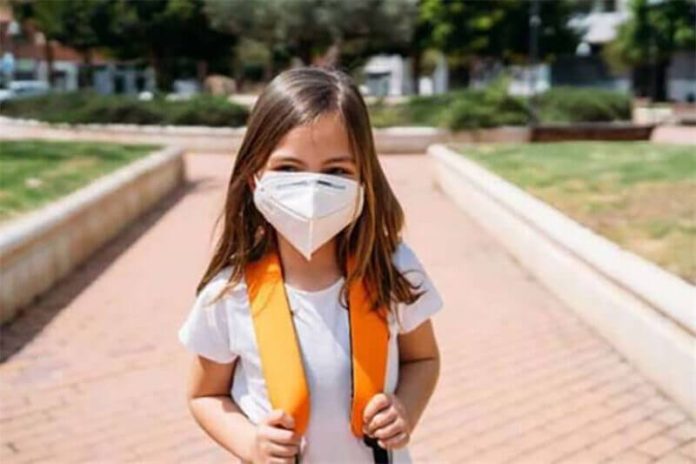As I write this, my child is at her school, in person, for the first time since schools closed over a year and a half ago.
It’s been a very long road. And while she doesn’t seem to have emotionally suffered in big and obvious ways, I’m not sure I’d classify her as doing 100% great either.
In the end, she’s human and living through a situation that is counterintuitive to the most socially dependent species on the planet. Like all of us still hanging around in this long, drawn-out pandemic, there are times when she seems to be languishing just as much as the rest of us.
She’s started biting her nails again. She gets upset about things that before would not have been such a big deal. She forgets to get up to go to the bathroom.
Are these pandemic-induced behaviors or simply the characteristics of a normal seven-year-old? It’s hard to be sure, but I certainly don’t think the pandemic is helping her development.
But there seems to be a light at the end of the tunnel.
First, her particular school is, I believe, the most ideal place for her to be in the city: classes are small — at around seven kids per group — and are mostly outside.
Everyone at the school wears face masks at all times, all of the adult employees are vaccinated and the school strictly insists on weekly reports from families so it can be informed if anyone in the household has come into contact with someone who has COVID.
Online classes have been maintained one day a week so that if the need arises, both the school’s infrastructure and its community behaviors can adapt quickly.
And according to Health Minister López-Gatell, infections among children are down just as much as in the general population, meaning that, at least so far, schools have not been a magnet for COVID infection as many had feared they might.
Thankfully, too, schools here are actually insisting on following health protocols rather than engaging in silly culture wars about face masks like certain states in certain countries I know but will not mention.
I’m now eying the United States’ imminent approval of vaccines for children. FDA approval is, by all accounts, just around the corner … in the United States.
Thankfully, it’s been announced that children will not need to show proof of vaccination to enter the U.S. (because how could they, of course), so while there’s quite a bit to take care of first, I hope to be able to travel there with my daughter so that she can be vaccinated.
If I were sure that vaccines for children were just around the corner here too, I’d simply wait a few months. Renewing my daughter’s expired passports is expensive and time-consuming, and a trip to the U.S. for at least three weeks would also be expensive — all during a time in which, as for many others, extra money is scarce while consumer prices continue to rise.
But especially given how resistant the government seems to be to vaccinating even 12 to 17-year-olds unless they have specific health problems, my hopes aren’t high that vaccines will be made available to young children anytime soon.
Besides, I haven’t been home in two years. I’m ready for a visit!
But back to vaccines. If Mexico wants to ensure that school attendance increases more than the 50% that it’s currently at, then it would behoove them to offer vaccines to children and teens as soon as they’re able to do so.
Many parents are still very nervous, and I understand that. I personally have always felt nervous about my child riding in a car, an activity statistically much more likely to harm her than being around other people in the middle of a pandemic. That doesn’t mean, however, that I refuse to allow her to ride in cars. Life is risky.
Though it’s hard to accept, behaving like the overly safety-conscious dad in Finding Nemo won’t necessarily keep children out of harm’s way — and will likely inspire some major rebellion.
And denying children their right to an education (and the social learning that comes with it), a right clearly specified in both national and international law, will do — and likely has already done — much more harm than good.
Adults are great, but adults cannot meet a child’s social needs by themselves. And while I’d classify all of us various adults around her as objectively awesome parental and caretaking figures, I’m very aware that we’re not all she needs.
So let’s get with it, people. Masks on. Gel in backpacks. Desks spread apart. Vaccinated grown-ups. And as soon as possible, vaccinated children.
Our kids are waiting for us.
Sarah DeVries is a writer and translator based in Xalapa, Veracruz. She can be reached through her website, sdevrieswritingandtranslating.com and her Patreon page.
